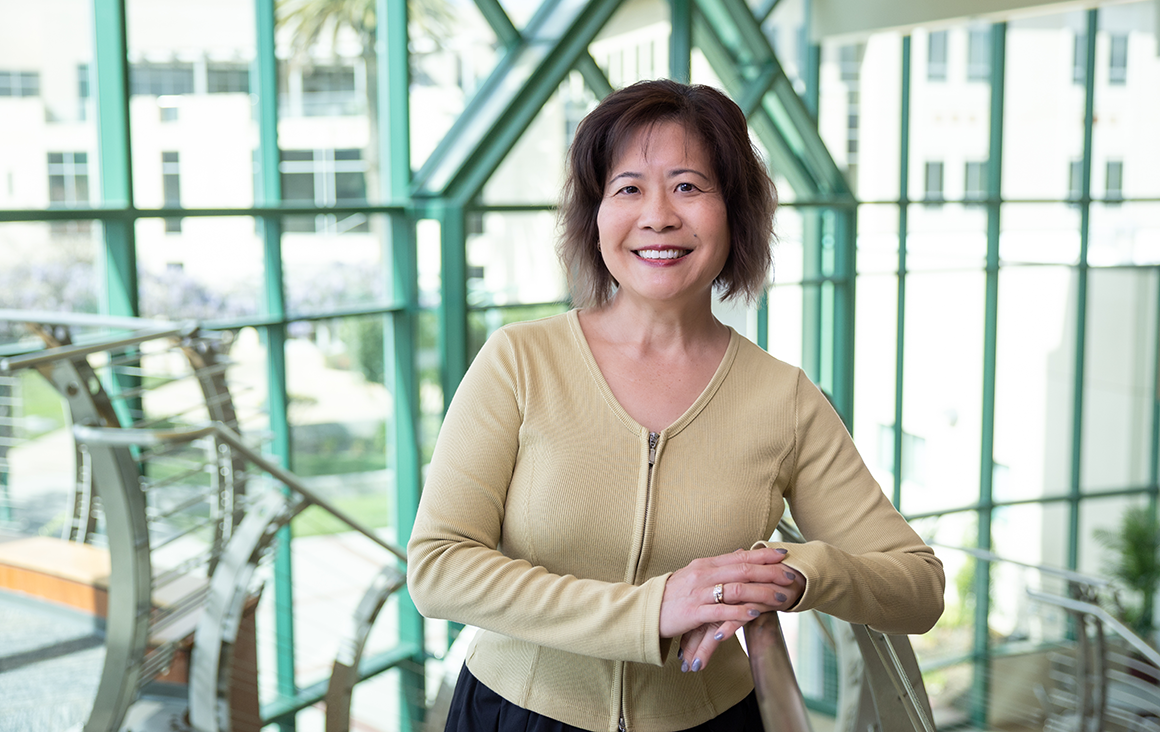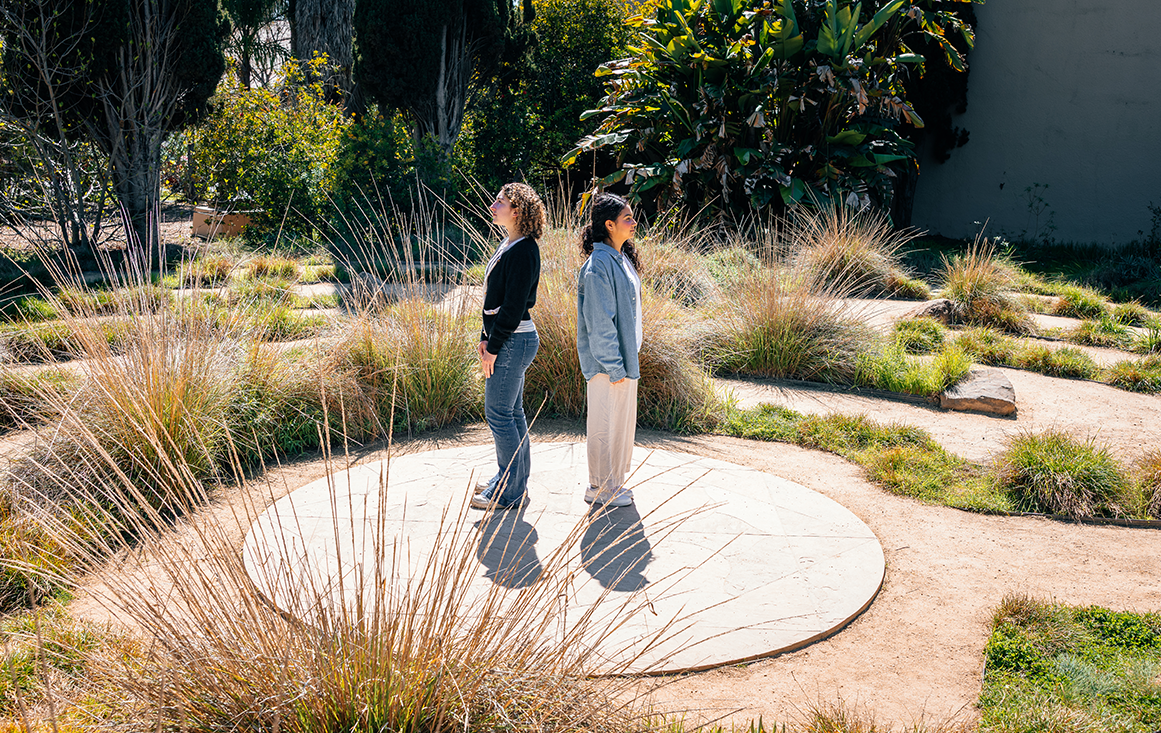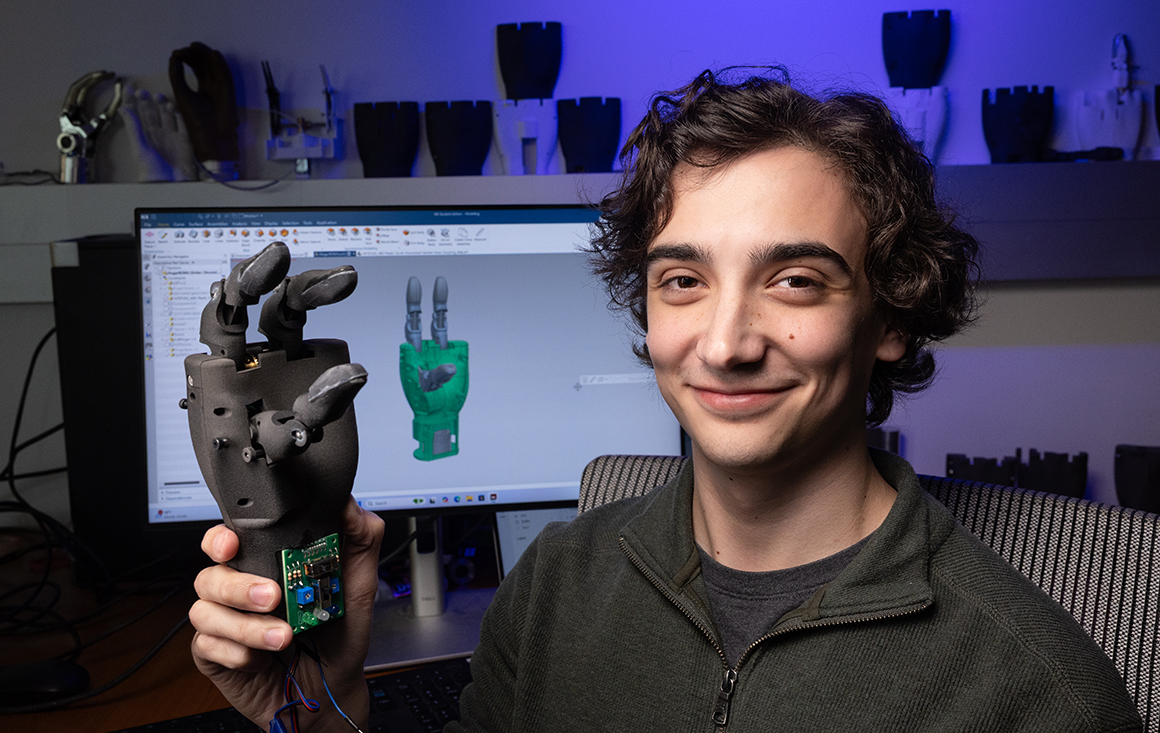Bringing “Synodality” to Santa Clara

The poet Gerard Manley Hopkins, S.J. once wrote, “Christ plays in ten thousand places.”
It’s a message that resonates with Agbonkhianmeghe E. Orobator, S.J., STL ’98, Hon. ’12, dean of Santa Clara University’s Jesuit School of Theology. Having spent 37 years following his mission wherever it takes him, he’s come to see himself as part of a global community—and according to him, that global community needs to be heard now more than ever.
“Gone are the days when Western Christianity was seen as the center of the church,” explains Fr. Orobator, who often describes the church as “a constellation of peripheries,” both geographic and existential. He believes that one of the Catholic Church’s biggest challenges is to better serve “those relegated to the margins by migration, climate change, injustice, inequality, racism, and all other conditions that undermine the dignity of people as created in the image and likeness of a loving God.”
Answering this call, in October 2023, Pope Francis convened not just bishops, archbishops, and priests, but also lay women and men to the Vatican for a synod, or church gathering. The synod’s theme? “Synodality” itself.
Synods have been a part of the Catholic Church since its earliest days, often dealing with disputes over doctrine or church administration. However, Pope Francis hoped that by calling a wider and more diverse group of church members to reflect deeply on this traditional process of listening, dialogue, and discernment, the church would be better able to deal with the increasingly complex and divisive global issues of the 21st century.
As one of the 364 voting delegates who attended the “Synod on Synodality,” Fr. Orobator described this synod as not only historic, but “strongly aligned with Jesuit values.” So, when the 2023 synod came to a close, he and many others in attendance felt inspired to continue these crucial conversations back home. Thus, the idea for SCU-JST’s “Synodal Journey” was born.
Beginning with a panel series called “Synodal Moments,” the year-long Synodal Journey invites everyone at Santa Clara—students, faculty, and staff—to experience deep and meaningful discussions across a range of conferences, panels, and community partner events, culminating in a large convening in Spring 2025.
As this Synodal Journey kicks off, Fr. Orobator shares a little about what participants can expect and why the synodal process is a perfect fit for SCU.
What’s special or unique about the Synodal Moments series at SCU? What’s the goal of this series?
The series has several goals. First, it aims to promote conversation and continue the synod process that started in Rome. Second, it widens the space of conversation by inviting all members of our community to participate in these events. Third, the series is a means of deepening the practice of synodality, so that it becomes a part of our ordinary life.
You’ve described the synod as an “invitation.” What does that invitation entail?
Synodality implies vulnerability. If we are rooted in our ideologies, we do not move forward. Synodality invites us to admit that we don’t have all the answers, and that there could be more opportunities to discover new ways of being a church and doing our mission. This can be scary. It is like going out into the unknown, rowing into the deep. But synodality is also an act of faith: We believe that the Spirit of the risen Christ never leaves us to walk alone.
As a campus community, we are challenged to create room for the other, finding ways to journey together, and aspiring to reach consensus even when we strongly disagree about matters that we care deeply about as people of faith.
The Synod on Synodality was focused on expanding participation and redefining mission in the face of contemporary challenges. How does this focus resonate with conversations you’ve seen play out at SCU?
Pope Francis has said that we are witnessing the change of an era, not merely an era of change. There are new realities, challenges, and opportunities for the church in the 21st century. Consider the advances in technology, upheavals in many parts of the world—including climate change, migration, war, violence. All of these challenges call the mission of the church to task. How should the church respond? What is the church’s responsibility in imagining a different and better version of the world? What kind of church is needed?
At SCU-JST, our mission as a school of theology is not indifferent to these contemporary challenges. These challenges create the space for us to deepen theological investigation and draw on the traditions of critical inquiry to find answers inspired by the Gospel of Jesus Christ.
How does a synod focused on the peripheries of our world align with SCU’s values and role as a global Jesuit university?
At JST-SCU we advance the study of culturally contextualized theology. Our students come from places where these existential issues shape the lives of people around them and countless other communities they will encounter. As we aim to meet our students where they are and make our work as a Jesuit higher-ed institution relevant globally, I feel inspired and privileged to have President Julie Sullivan as a partner.
Together, JST and SCU are truly aiming to create a community where all can feel they belong and where all can fulfill their purpose, achieve success, and thrive. This is very aligned with synodality.
JST’s Synodal Moments series will include discussions on the role of women in the Church, LGBTQ+ acceptance, and broader Church hierarchy. For people who are not Catholic, why are these discussions important to participate in?
These questions about the role of women, inclusion of LGBTQ+ people, and the exercise of leadership are also issues that the rest of society is attempting to grapple with. If the church stays true to its role as a moral presence in the world, its voice can be important in guiding how the rest of society addresses these matters.
Synods have happened for thousands of years. Why is synodality still relevant today?
We live in a deeply polarized world, both globally and within countries. The synodal process prioritizes consensus, conversation, and dialogue in view of reaching common ground. These are practices that build bridges and help to overcome division. That is vitally needed in today’s world.
What do you hope people of all faith backgrounds take away from these Synodal Moments?
I hope they appreciate the importance of the practice of listening, dialogue, and discernment in dealing with difficult conversations about matters that often generate tension. I hope they come to realize that we can disagree about issues, but remain committed to finding common ground and serving the common good as a community of faith, hope, and charity.
The Jesuit School of Theology of Santa Clara University is facilitating a series of synod-inspired conversations and events in partnership with our students, faculty, staff, and broader communities. Join us as we ask the Spirit to form us into a prayerful, humble, and listening Church.


